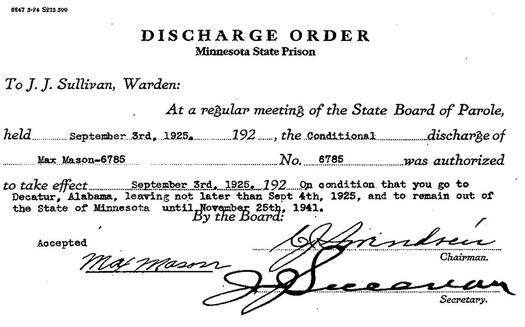

Share
The police killing of George Floyd has pushed deep-seated racial tensions to the forefront in Minnesota. Many cite a horrific event from 100 years ago as underscoring the history of racism in the state, and a pardon in that case is being considered.
The state Board of Pardons, which includes Gov. Tim Walz, could vote as early as today on a posthumous pardon for Max Mason, a black man convicted of raping a white woman in Duluth in 1920.
This week, Walz scoffed at the notion that the legislature should wait until after the special session to take serious action in addressing racial inequalities.
“That’s been out there for a long time,” says Walz. “This is the point where what fueled the rage on the streets was this idea that, ‘We’ll just wait till there’s a better time to fix this or this is going to.'”
Sen. Majority Leader Paul Gazekla has suggested that in the special session, any major decisions regarding racial gaps should wait. In the Mason case, the panel considering the request also has to determine whether it has the authority to issue a posthumous pardon.
Mason died in 1942. Three other men suspected of being involved were lynched by a white mob.
Many legal experts have said the investigation was flawed and was driven by racial bias. The proposed pardon also has the backing of many former state leaders.
As for addressing the systemic issues underlying the Mason and Floyd cases, Walz says there are a lot of changes to consider.
“I’m not saying we need to rush headlong, and I’m not saying all this is going to happen overnight,” says Walz. “Because let’s be very clear, police reform and police accountability is one piece of this. Educational reform and opportunity gaps is another. Inequities in health care is another.”
In the Minnesota House, the People of Color and Indigenous Caucus has proposed several fixes that are expected to be strongly considered in the lower chamber. But it’s unclear how the Senate would vote on them.

